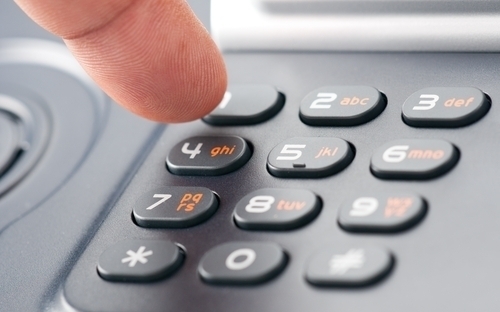GP surgeries move to telephone-first model to protect patients against coronavirus

GP practices have moved to a telephone-first model after exposure to patients with potential coronavirus.
In a statement, the Village Surgeries, with sites in Farndon and Tattenhall near Chester, said its decision to implement the system came after ‘irresponsible actions of three patients who didn’t disclose their travel history’.
It said the move was necessary in order to ensure the practice could remain open.
The practice added: ‘Patients with GP appointments will initially be telephoned by a GP as many issues can be dealt with without the need to visit the surgery.
‘Should face-to-face assessment be required, you will be asked to confirm any travel or contact history within the last 14 days before attending the surgery.’
The Yealm Medical Centre in Plymouth has also moved to telephone appointments, and one of its GPs is self-isolating after potential coronavirus exposure.
A notice on its website said: ‘One of our doctors has had potential exposure to Covid-19 whilst working in Torbay. They have not seen any patients at Yealm since being potentially exposed, but Public Health England have advised they need to self-isolate for 14 days.
‘As a result of this, and to try and protect our staff and patients, we are not going to book routine appointments for the next few weeks and will move to a a telephone triage system. We will still continue to see patients if we feel there is a clinical need.’
A 20,000-patient practice in Devon – the Chelston Hall Surgery in Torquay – has decided to close until at least 16 March to avoid spread of infection in the area after two local patients tested positive.
And a GP walk-in centre in Aberdeenshire was reported to have moved to appointments only in a bid to stop the virus spreading in the community, according to the Press and Journal.
NHS England has not issued advice urging GP practices to move to remote consultations, but a letter sent yesterday called on hospital trusts and community providers to do so.
The letter from NHS England and NHS Improvement strategic incident director Professor Keith Willett said that community and mental health providers should ‘where possible, consider implementing alternative models such as remote consultations for those patients who can be supported at home and review arrangements to support vulnerable individuals in alternative settings, including in the community’.
BMA GP Committee chair Dr Richard Vautrey told Pulse that ‘many patients value the opportunity of telephone consultations, which reduces the need for people to physically visit their local surgery’.
But he added: ‘However, it’s important to remember that while these steps are being encouraged by NHS England and might be appropriate for some patients, they are not suitable for all – particularly those with complex conditions, or those that need a physical examination and who will still need to see their GP or practice healthcare professional in the practice.’
Dr Dave Triska, a GP in Surrey, said: ‘It seems an eminently sensible idea to switch to a phone and/or digital triage model, as many GPs have suggested this week.’
On the latest count, a total of 16,659 people had been tested in the UK, of which 85 were confirmed positive – over 30 of which were diagnosed since yesterday. Out of the new cases, three patients contracted the virus in the UK.
The Government is preparing for a worst-case scenario where 80% of the population get the virus and one fifth of the workforce is off work at the peak of the outbreak.
Under the Government’s plans to deal with the situation, retired GPs may be called back to the workforce, non-urgent care may be delayed and health professionals will have powers to detain people in quarantine areas if they suspect them of having the virus.









